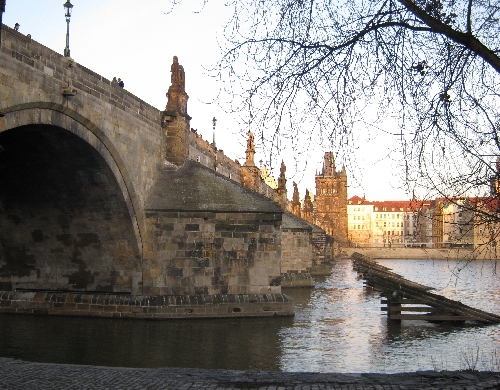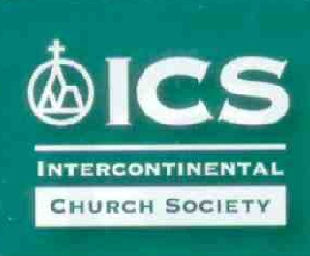
As I’ve written previously on this blog, ever since moving to the Czech Republic in September 2008, I have happily lived without having a television. Even in my latter years of living in the UK, I only tended to watch television in order to keep up-to-date with the News, together with enjoying the occasional major sporting event if it still was on terrestrial television. I refuse point blank to pay for satellite or cable TV, particularly as most of it is controlled by Rupert Murdoch. And we all now know quite clearly what journalists and others in his organisation do!
Therefore now, in order to keep abreast of what is happening in the world, I have become a very regular visitor to the BBC News website. I find its coverage to be fairly comprehensive, regularly updated and that it provides news without any particular political bias.
I do however, have a couple of gripes. As one who used to happily pay his annual licence fee, I am someone who always enjoyed the BBC as it was totally free of advertising. Because I now access the BBC News website from a foreign country, unfortunately advertising also appears.
Secondly, as my first degree is in geography, I get irritated by the complete geographical ignorance of some BBC journalists. A couple of years back, a news article about something that had happened in Pau in south-central France, was accompanied by a map showing Pau as being on the Atlantic coast of France when it is 125 kilometres from the sea! More recently, a news article about Serbia included a map purporting to be of Serbia, which showed Montenegro as being wholly within it’s borders when the two countries had separated several years previously and mutually recognise each other.
But my real frustration comes whenever there is a news item that involves some aspect of the Christian faith. Firstly, the theological and ecclesiastical ignorance of many BBC journalists is even greater than the geographical ignorance that I referred to earlier. But what really annoys me is that, if the Archbishop of Canterbury is quoted, or the Roman Catholic Archbishop of Westminster has made a pronouncement, then you can be sure that the news item will also include the completely opposite view of Terry Sanderson or Keith Porteous Wood of the National Secular Society, or Andrew Copson, Chief Executive of the British Humanist Association.
The BBC do this because they want to comply with their obligation to be unbiased and balanced in their reporting. But the reality is that, by giving undue prominence to the views of the National Secular Society and the British Humanist Association, and on BBC TV & Radio, giving them airtime, they are actually being highly unbalanced.
On the average Sunday in the UK, there are around one million people worshiping in Anglican Churches, about one million in Roman Catholic Churches, and a further million in a whole variety of Free Churches. This accounts for about 5% of the UK population. At least six million people in the UK attend Church at least once a month which is 10% of the population. I wish these figures were higher but even so, it still is a significant number of people.
Being aware of this, I set out to try and discover the membership numbers for the National Secular Society and the British Humanist Association. In doing so, I discovered two things. The first is that this information is far from being freely available. The second is, I am not the first person to try to do so and to recognise that both organisations are being given absurdly more recognition than they realistically deserve.
The website of the British Humanist Association states that it has ‘over 28,000 members and supporters’. However, it doesn’t state the difference in numbers between ‘members’ – those who have paid an annual membership fee – and ‘supporters’. What is a ‘supporter’? Someone who made a £5.00 donation in the past or who wrote a friendly email five years ago?
The National Secular Society is even less clear. No membership numbers are published and an email I sent many months ago, asking the question, never got a reply. However, this blogger has looked at their financial returns and has come up with a figure of less than 5,500. Another writer has analysed the figures and come to the conclusion of no more than 7000.
These figures speak volumes. As Gavin Drake says, “If, as the (National Secular) Society claim, the Church is irrelevant on the basis of numbers; then on what basis is the National Secular Society relevant?” The answer is quite obvious – neither the National Secular Society nor the British Humanist Association are relevant. If they were, people would be flocking to join and support them in droves. Quite clearly, they aren’t. I rest my case and hope that, in the interest of balanced reporting, the BBC also takes notice.




I wouldn’t hold your breath, Ricky. 🙂 Controversy is what sells newspapers and it’s what the TV networks think makes for interesting TV. That it’s also highly unbalanced doesn’t seem to enter the equation as you rightly point out. Sigh…
Hi Perpetua – You are quite right – the media is always looking for controversy as they think that nearly everybody being in agreement with each other, isn’t news. But the BBC is meant to be unbiased and not tied to business interests, any particular political point-of-view or pressure group. Yet the National Secular Society & the British Humanist Association have in the last few years, somehow been allowed to have their views broadcast on an almost equal basis to that of the Christian Churches yet in reality, they are two very small pressure groups and extremely unrepresentative of the UK population as a whole.
A brilliant point Ricky. Perpetua is probably right that the BBC are more interested in provoking a bit of controversy so that it makes for “interesting TV” rather than balancing any bias, but it concerns me that they get away with this.
What also concerns me is that 90-95% of people in the UK never go near church and presumably don’t belong to one either… yet we don’t see any big drive to evangelize them. But I suppose that is another matter.
Hi Wandering Pilgrim,
This is exactly my point. Rather than balancing bias, by giving such prominence to the miniscule NSS & BHA, they are introducing bias and as you say, getting away with it!
Reaching out to the mass of un-churched people is a completely different matter. But in the meantime, we shouldn’t be afraid to stress the size of the Christian Churches, much as we would like them to be bigger. Combined, they are by far the biggest voluntary organization in the whole of the UK.
Ricky, you’re on a roll with these last two blog posts. Someone is going to offer you a critic’s column and ask you to give up your day job.
Hi Karen – Thank you for the positive vibe. I’m afraid I haven’t had a job offers yet though I am giving a university lecture to a group of American students next week, addressing the question as to “Why the Czech Republic is one of the most atheistic nations in Europe?”
I hope you enjoyed Cappadocia & write about it soon. Your own blog has been a little quiet of late.
Yes, my blog *has* been too quiet lately. Too much livin’, not enough writing!
Hi again Karen – do try & find the time to tell us about the ‘livin’ 🙂
I remember the times when BBC’s site was totally free from advertising, Maybe because of the tough economic conditions the advertising is there. There could be one more thing, I had read BBC’s funding, which used to come from television licence fees, must have reduced. I guess these are reasons that have compelled them to earn money through advertising. but I like the way they have still enough space for News, unlike others :)!!!
Krysta, I agree with your view. It’s becoming a popular belief now that the licence fee needs to be reviewed, and what areas the money is pumped into. In the last few years, I haven’t noticed a massive hike in the fee, but this might be due to the fact that so many of their top stars earn such vast sums of money. There would be a public outcry if they were to increase the fee at a time when this is going on, which is maybe why they advertise to increase their revenue elsewhere. However, the BBC still produce some great programs!